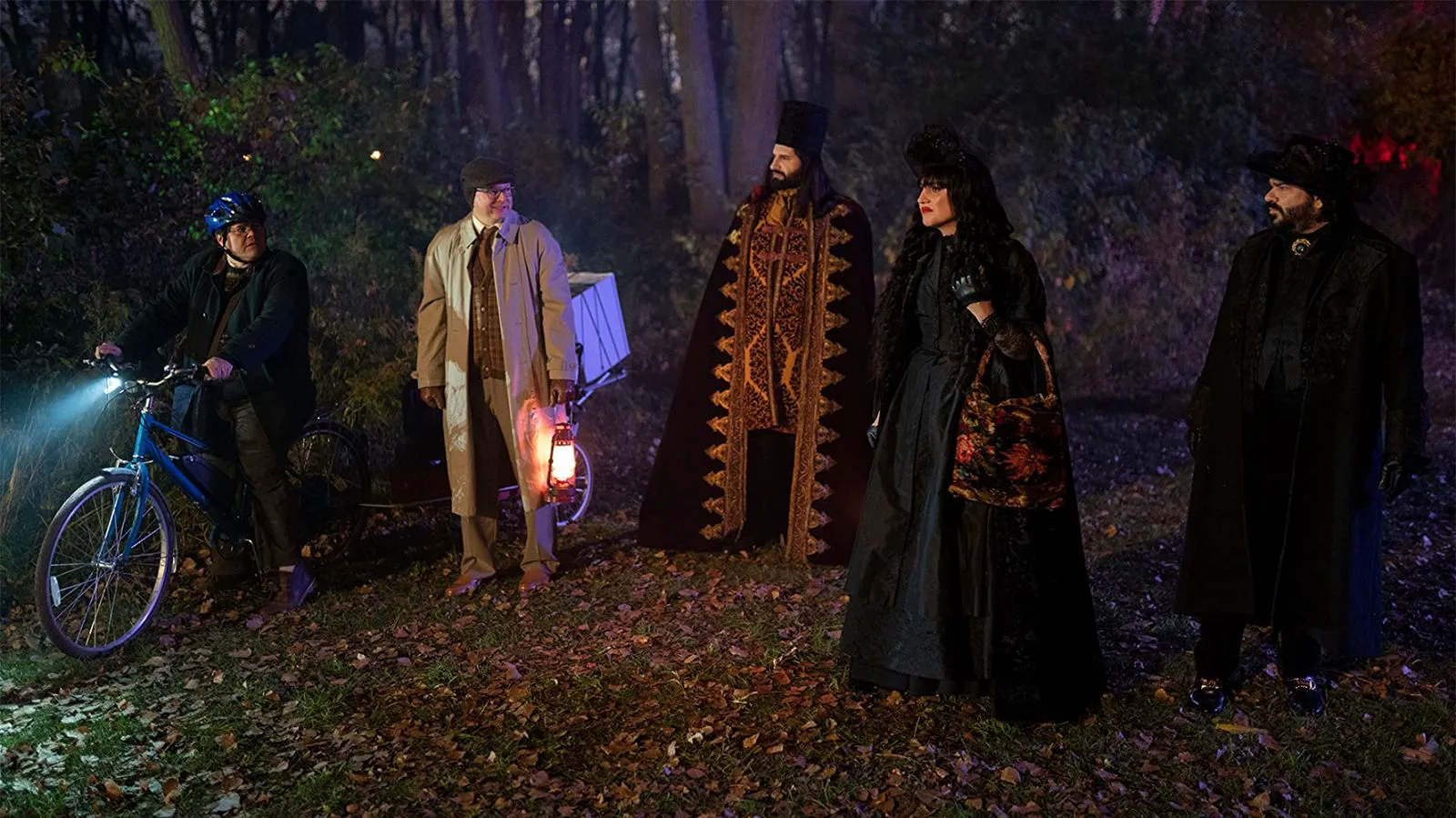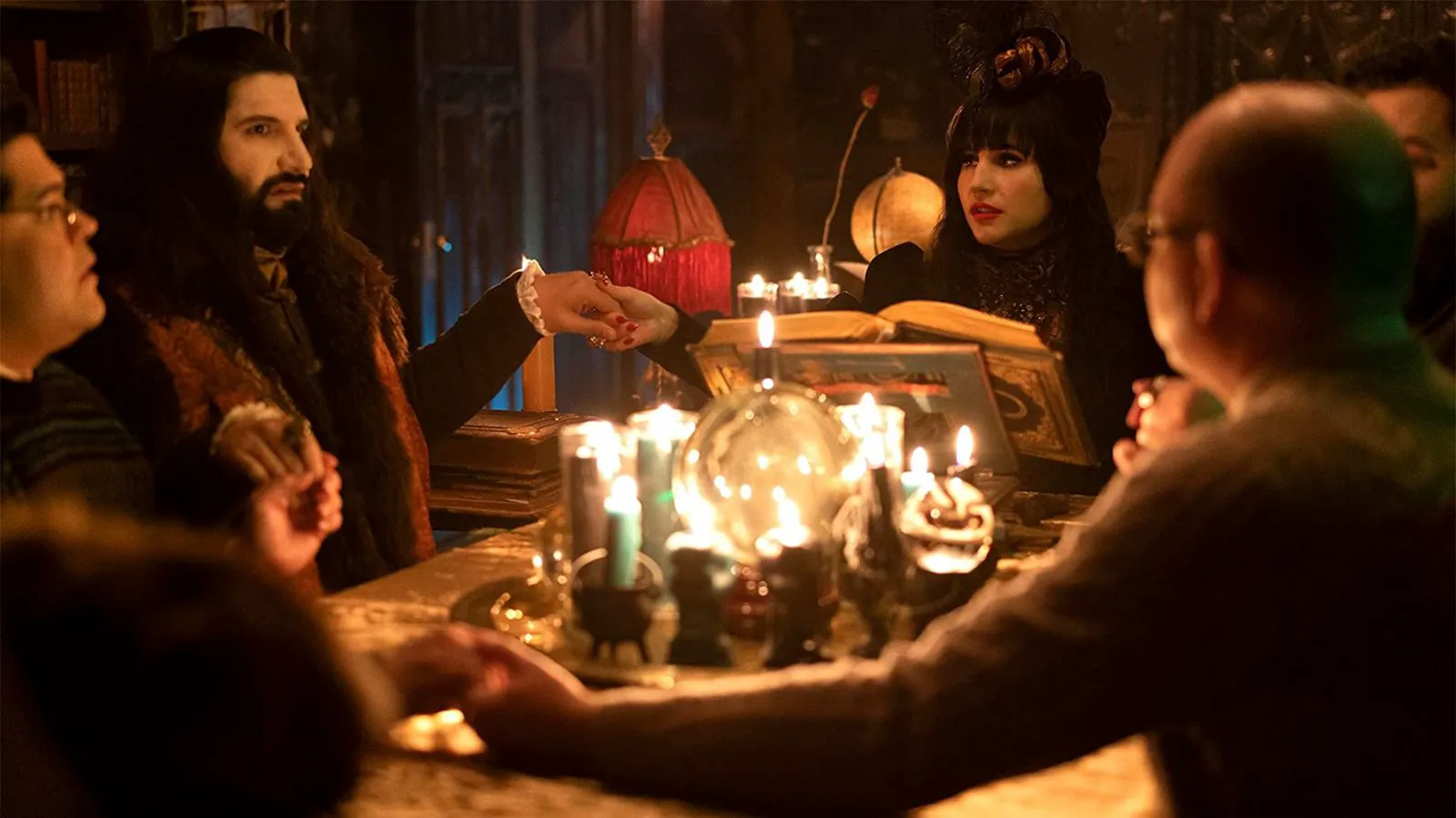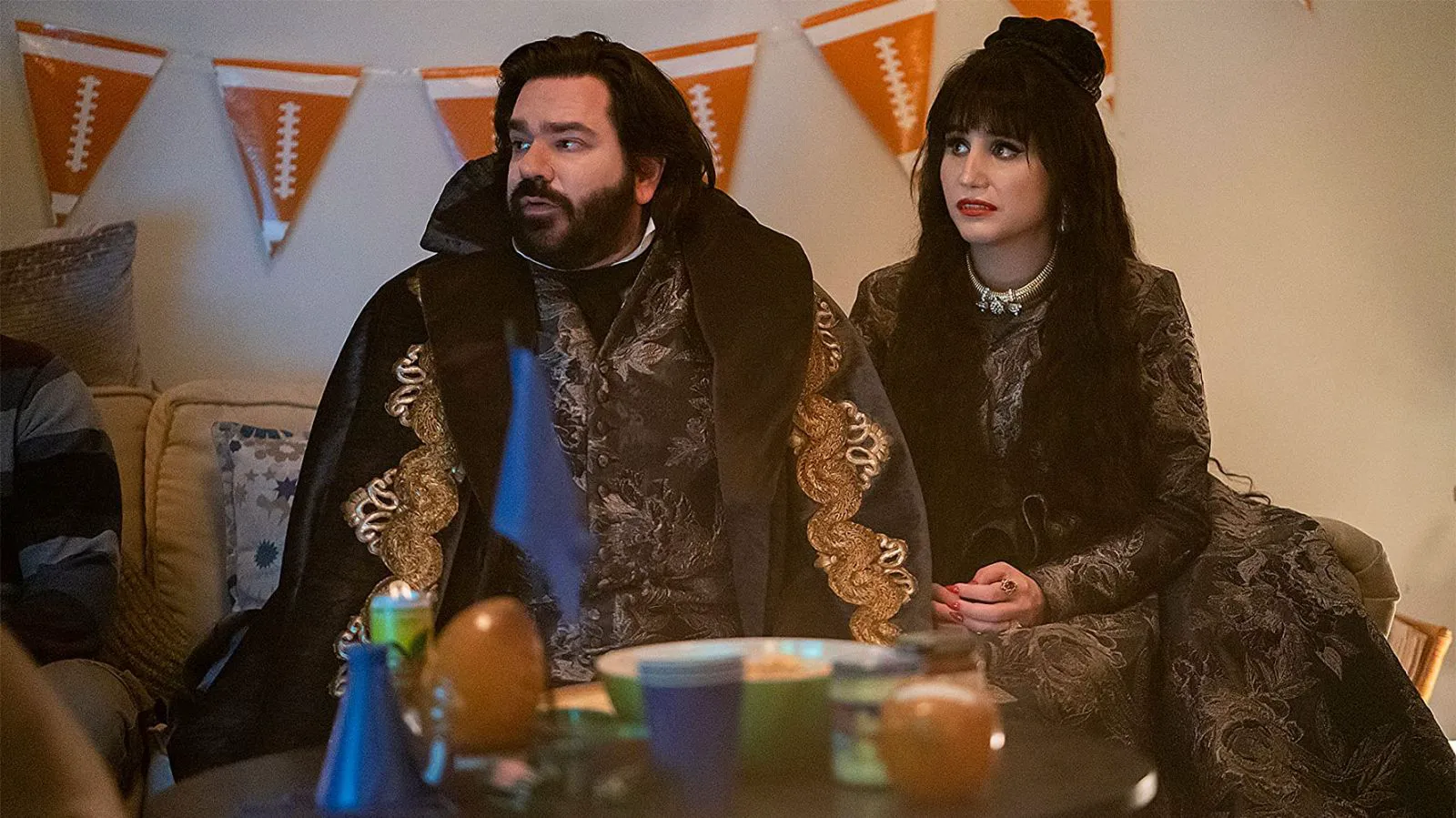Shadows Lengthen: A Look at Season Two of “What We Do in the Shadows”
Three decadent vampires continue their awkward assimilation into modern American life. Laszlo and Nadja are perpetually on the hunt for a familiar, but their prospects keep meeting hilariously unfortunate ends. Meanwhile, energy vampire Colin Robinson climbs the corporate ladder, making life even more draining for everyone around him. And Guillermo, Nadja’s ever-faithful familiar, grapples with his Van Helsing lineage, secretly saving his masters from vampire assassins while wrestling with his own identity: servant or slayer?

Jemaine Clement, the mastermind behind the original “What We Do in the Shadows” film and the series’ primary writer, once joked in a late-night interview that he and Taika Waititi were baffled by how they managed to stretch a short film concept into a feature-length movie and then a full-blown TV series. This was back when only the first (excellent) season had aired, and the comment was amusing. But if he made that joke now, it might not land quite as well.

The premise of “What We Do in the Shadows” doesn’t exactly scream longevity. As we noted in our review of the first season, without significant creative injections, the show risked devolving into a mundane sitcom. Unlike “Friends” or “The Office,” with their adaptable settings, the core idea here is too specific and unusual. Attempts to broaden it often fall flat.

The Bite is Gone
Unfortunately, those fears materialized. Season two of “What We Do in the Shadows” lost both the unique charm of the original New Zealand comedy and the freshness of its concepts. It’s now just another sitcom, relying on established character quirks and celebrity cameos (though nothing will top the vampire council scene from season one). Clement and Waititi seem less invested in the series (especially Waititi, who is incredibly busy), and it shows. The truly inspired moments are largely thanks to Clement and the episodes he personally directed.
A Fading Spark
“What We Do in the Shadows” isn’t a bad show, per se. It still provides light, undemanding entertainment for a dull evening. But compared to its predecessor and what it could have been (though perhaps it was always destined for this), it’s a bit disappointing. The one consistently bright spot is Guillermo’s storyline, torn between his desire to become a vampire and his destiny as a vampire hunter. This speaks volumes about the season: a comedy show about vampires that would be better without the vampires.